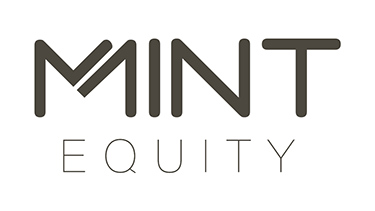As part of the 2020-21 Budget, the NSW Government revealed a proposal to give property buyers the choice to pay stamp duty in a lump sum on settlement or pay a smaller annual property tax when they purchase a property.
The review has been fast tracked with the public consultation commencing in November 2020 and closing in March 2021. Now, the NSW Government has released a progress update, which indicated the reform is likely to go ahead.
What are the proposed changes to NSW stamp duty and property taxes?
Essentially, the NSW Government is proposing that property buyers choose to either pay a lump sum amount of stamp duty at the same rates available today or an annual tax based on the unimproved land value for every year you owned the property.
The proposal also stipulated that if you choose to pay land tax on the property, the property would remain subject to annual tax forever and subsequent owners must pay the property tax.
How would buying and selling property change if the reform goes ahead?
If the proposal were to go ahead, it won’t be long before you start seeing real estate property listings disclosing that the property is ‘subject to property tax’, if the previous owner had chosen that option.
For those buyers looking to hold the property for the long term, paying property tax on that property may discourage them from buying that particular property, depending on their strategy, as they may end up paying more in annual tax than they would have paying stamp duty, particularly as land values increase.
If a property is subject to property tax, the value may decrease as some buyers might not feel comfortable having to pay an annual tax for every year they own that property.
How will investors be impacted by property tax?
The annual property tax is higher for investment properties, and as investors like to minimise their ongoing costs, there may be a risk that the ongoing property taxes will be reflected in the rental increases, inadvertently disadvantaging renters.
Another point with regards to the income tax implications of stamp duty vs property tax, noting that stamp duty would be a capital cost and reduce the capital gains tax liability when the property is sold, whereas the annual property tax would be an expense that can be offset against any rental income in calculating personal income tax liability. These factors will need to be carefully considered by investors before selecting to pay stamp duty or an annual property tax.
Will an annual property tax affect my borrowing capacity?
As with any ongoing living expense, the costs associated with your main residence or investment property will need to be taken into account when calculating your borrowing capacity. If property tax is rolled out in NSW, lenders will need to ensure those costs have been considered when assessing your ability to repay the mortgage.
The MFAA noted in their reform submission “While mortgage lenders will respond in varying ways to borrowers opting to incur the ongoing property tax, it is likely many will take the expense into account when determining how much a borrower can borrow and their capacity to meet the repayments going forward. This may have the opposite effect to making it easier for consumers to buy, because serviceability is likely to be impacted and the reduced loan amount may exceed the cash saving by not paying stamp duty up front.”
Keep in mind, the property tax is calculated on the land value, which means apartments and smaller properties will have lower land values than a standard quarter-acre-block.
To find out the land value of your property, you can visit the NSW Government Valuer General website
Will the property tax reforms go ahead?
Going by the feedback incorporated into the Progress Paper that was released in June 2021, it seems likely that the NSW Government will make some minor revisions to the proposed reform and then put it up for legislation change.
According to the progress paper, the consultation period found there was strong support for the reforms goals;
Stamp duty reform is welcomed and needed
The annual nature of the proposed tax created uncertainty over rate increases going forward
The proposal resonated strongly with first home buyers
Some retirees, farmers and residential investors have questioned the benefits of the reform for them
Many expert groups responded positively to the proposal
Some groups remain concerned regarding elements of the proposed policy, including one-way choice, the ongoing nature of the charge, the future rates of property tax, retrospectivity and the impact on property prices
The more people learn about the reform, the more supportive they become
For more information, review the NSW Government Property Tax Progress Paper


